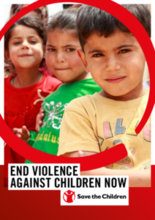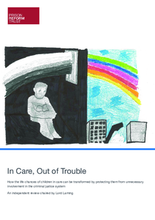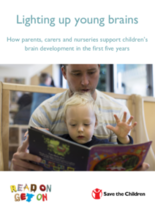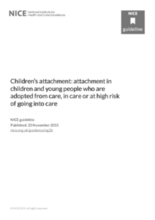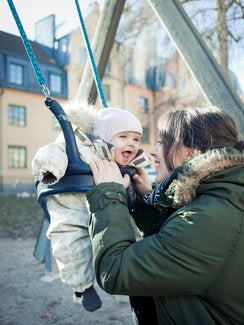

Displaying 1321 - 1330 of 1585
Meant to highlight the maxim that every child deserves the best that we all have to give; this book provides a review of the progress made since The UN Convention on the Rights of the Child. It contains reports from 21 countries on the status of the rights of the child. The countries are: Australia, Canada, Croatia, Denmark, France, Germany, Greece, India, Iran, Japan, Portugal, Romania, Scotland, Serbia, Solomon Islands, Spain, the Netherlands, the UK, the USA, Uzbekistan and Venezuela. There are no reports from Africa.
This booklet is based on a recent internal desk review of Save the Children’s and partners’ work against physical and humiliating punishment of children, commissioned by Save the Children Sweden. It aims to present best practices, to show what methods have worked around the world, and to spread knowledge about results achieved and lessons learned when it comes to law reform and positive discipline.
This review was established to examine the reasons for, and how best to tackle, the over representation of children in care, or with experience of care, in the criminal justice system in England and Wales.
This report from Save the Children outlines the rapid development that takes place in the brain in the early years of life and the crucial role that caregivers play in supporting this development.
Professor Robbie Gilligan discusses a “policy blind spot” in Ireland resulting from a lack of data collection on the education of children in the care system, including the percentage of those children who go on to university. Ireland recently launched a new National Plan for Equity of Access to Higher Education 2015-2019 to improve access to education for disadvantaged groups, but the new plan is silent on the educational needs for children in care.
This pamphlet and the accompanying video, a joint publication by Save the Children and the International Organization for Migration (IOM), share the experiences of "children on the move" in various countries, including Turkey, Italy, and Sweden.
This guideline covers the identification, assessment and treatment of attachment difficulties in children and young people up to age 18 who are adopted from care, in special guardianship, looked after by local authorities in foster homes (including kinship foster care), residential settings and other accommodation, or on the edge of care.
In this video from the BBC, Clive Myrie reports from Ethiopia, the first stop for many Eritrean migrants en route to Europe. The video features a few of these child migrants who are waiting in Ethiopia to make their way to Europe in hopes of a better life.
This article provides a brief overview of adoption policies in the UK since the 2000s, including the “introduction of the English Adoption and Children Act, passed in 2002, that placed the rights of the child front and centre of the English legal approach to child protection and brought English adoption practices in line with international legislation.”
This article from the BBC tells the story of Pamela Smedley, a woman who was sent to an orphanage in Australia from a children’s home in the UK in 1949, at the age of 13, on what she was told was a “day-trip.”

